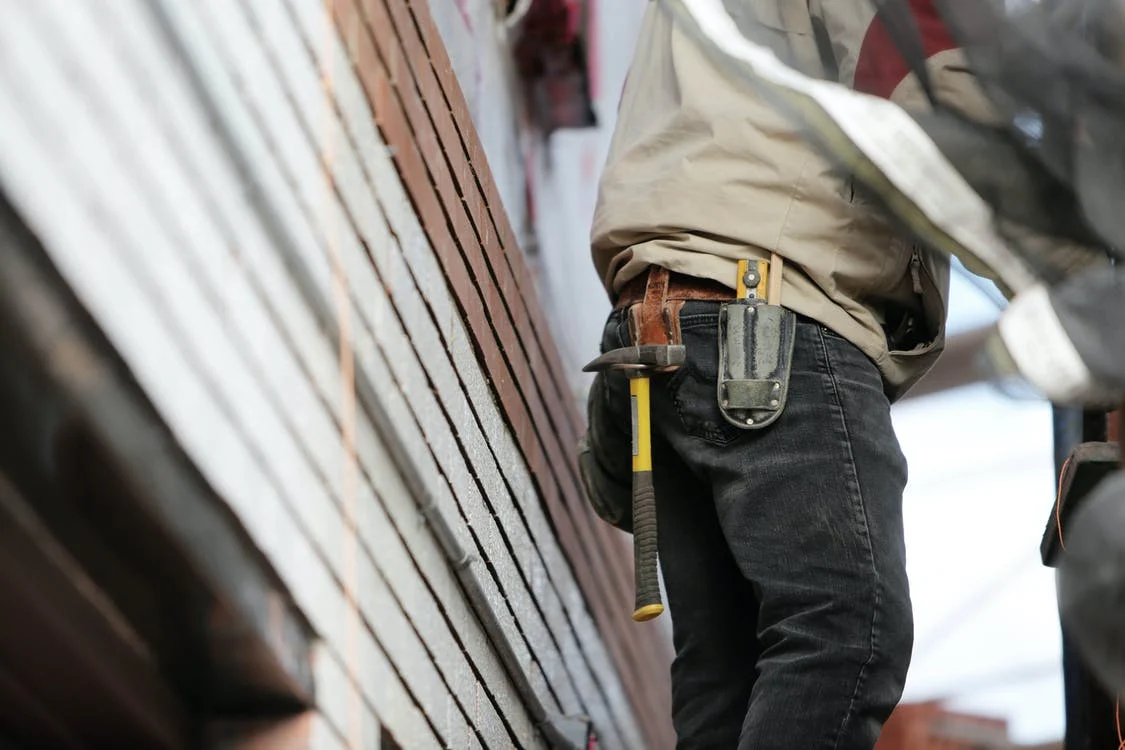The success of any construction, remodeling or renovation project relies on the competence of contractors. However, even if you choose great contractors, a lack of communication and cooperation can complicate the project and the end results may not be as you wished.
In this article, we will discuss how to cooperate with your general contractor in order to get the best results and an end product that you will love. Our 10 tips are based on years of experience of working with contractors across the country, with many tips based on common sense and best practice.
What is a General Contractor?
A General Contractor provides services relating to renovation and construction work that takes place in a home. These contractors are independent professionals who have completed many qualifications and certifications to provide a high-level service.
Contractors can either work for a company, or by themselves and have a broad skill set that can relate to the following; tiling, flooring, construction, landscape design, plumbing, electrician, kitchen remodeling, bathroom remodeling, HVAC, masonry, painting & decorating, and more.
There are 3 key benefits of working with a General Contractor
- Flexibility – Contractors can be hired as and when needed for a set period of time. This can help you control how many people are on-site at any one time and assist you in managing your budget and time scales.
- A wide skill set at your disposal – Hiring contractors means you can bring in an expert for any task that needs completing. Being able to bring in a specialist whenever you need is one of the main benefits of hiring a contractor.
- Money – Believe it or not, using contractors can be far cheaper than attempting the work yourself. If you lack the relevant experience then mistakes may be made that need to be rectified later at additional cost. Contractors also have a wide network of contacts that allow them to source materials and equipment at a lower cost, bringing down the cost of the project further.
Why it is important to cooperate with your contractor
Cooperating with your contractor is essential if the project is to go smoothly, within your desired timeframe and within budget. We suggest you consider SOD Home Group that operates around California. Any confusion or crossed wires can result in delays, costly errors, or the design not matching your initial plans. But this company has proven its reliability on hundreds of the ready construction, renovation and design projects.
10 Tips on how to cooperate with General Contractors to get the Best Construction Results
Specify your Requirements
From minute one, you should make it perfectly clear what you expect from your contractor or contractors. This involves sitting down with the project manager or contractor and coming up with detailed plans that consider even the finest of details, from costs to timeframes.
Using this information, the contractor can draw up designs, confirm costs and timings, and talk you through how the work will be completed.
Protection
Make sure the contractor has the relevant certification and insurance before hiring them. Many things can go wrong during a project, such as damage to the property or injury. Protect yourself and anyone on-site by making sure you are fully covered.
Rapport
When choosing your contractor you should consider how you get on with them on a personal level. This will make cooperating with them much easier and any difficult situations can be approached in a much more comfortable manner.
Be careful not to become too friendly though, as you do not want to be in a position where the contractor might take liberties and become a little too relaxed.
Be Respectful
A contractor is of course an independent professional that likely has vast amounts of experience and in-depth knowledge of many types of projects. To maintain a strong relationship, you should always be respectful of this level of expertise and not try to second guess your contractor on subjects they likely know much more about.
Talk about Timelines
Never be afraid to discuss timelines and whether things are on track for deadlines to be met. Ensure that your specified timeframe is being adhered to, and if there are any delays or problems speak with the contractor to see how any problems can be resolved from repainting to clearing the corners.

Have a Contract
Draw up a contract that should be signed by your contractor. To do this you could employ legal services, or tailor the standard contract that is provided to the contractor.
The contract should include;
- A full description of the services that will be provided.
- The timeframe of how long the contractor will provide the service.
- Any payment details, including deposits and retainers.
Discuss Materials
Materials can be costly, so determine whether your contractor can source them for you, or if this is something that can be arranged yourself. Contractors often have many contacts in the industry that can enable them to buy materials at a cheaper cost, so discuss whether this could be an option.
Give them the space to work effectively
Try not to suffocate your contractors with over the top observations and questioning. Trust that they are experts in their field and maintain your healthy relationship by giving them space to work and showing a level of trust.
Show Appreciation
If your contractor is doing a good job, then let them know. Showing that you appreciate the work that they are doing can help to build a bond which could mean that they could be willing to go the extra mile in some cases.
Provide Feedback
If the contractor does something that is not to your liking, then give them constructive feedback early into the project so they do things differently from there on in. Offering a little direction can help make sure you are both on the same wavelength.
Choosing the Best Contractors in California
When looking for a contractor in cities like San Jose, Fresno, Encino, and San Francisco general contractors company you should always conduct a thorough background check on each company that makes your shortlist. If a general contractor fails to provide a recent portfolio, references, and certifications then it would be wise to disregard them from your list and move on to the next.

